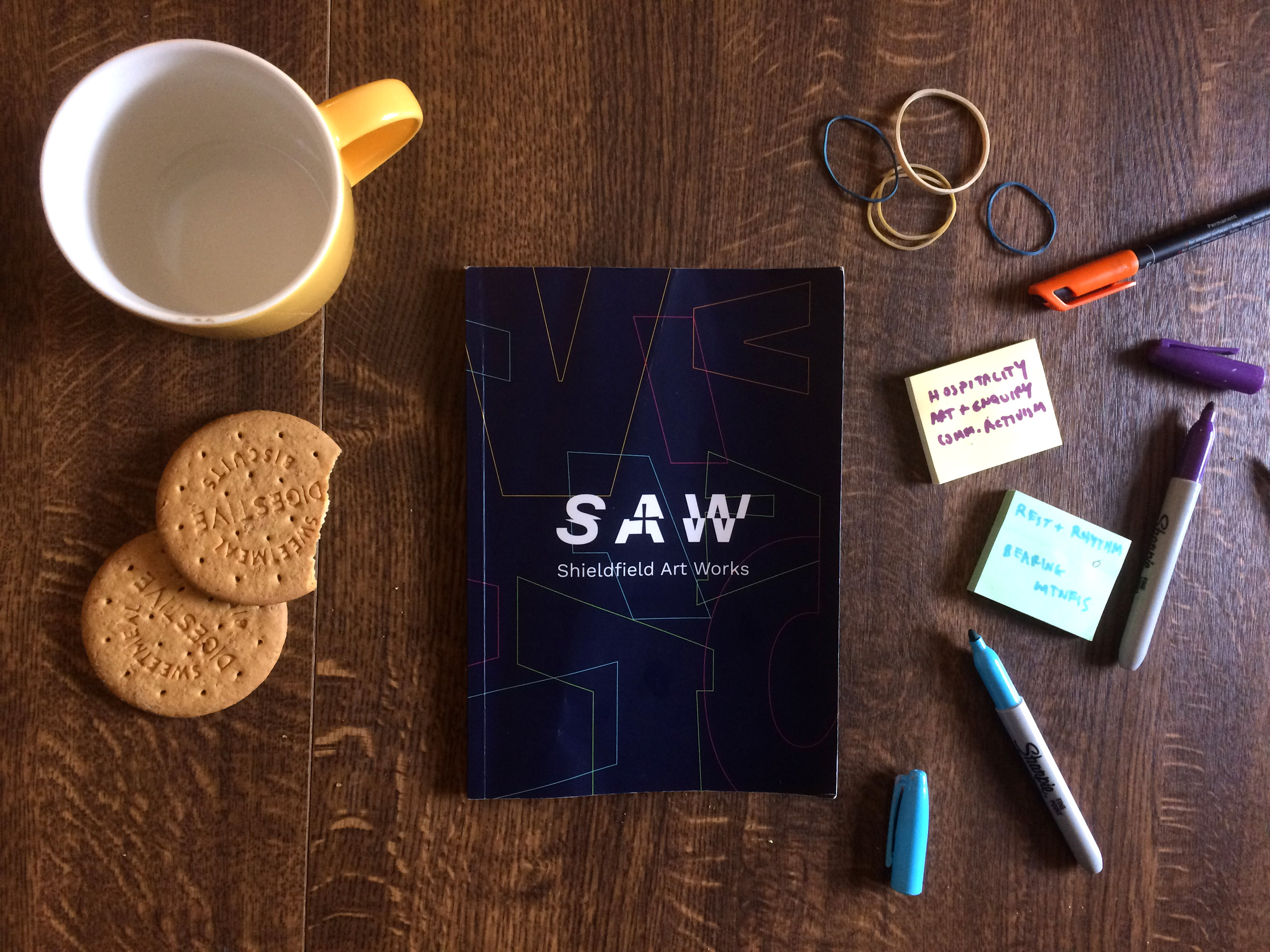In 2019 SAW released a publication. The publication was the outcome of many months of self reflection and careful consideration, within it’s pages we sought to explore and explain what SAW is, what it has been, and what it aims to be as an organisation. There are several essays within it that explore different aspects of our thinking and practise- here is one of them.
Isaiah 25 v 6 (ESV)
On this mountain the Lord of hosts will make for all peoples
a feast of rich food, a feast of well-aged wine,
of rich food full of marrow, of aged wine well refined.
[
The Programme Manager role naturally puts on the host’s apron. This host role is empowering because it is an acknowledgement that I have the rightful access to a place of meaning and value and that I have authority to welcome other people into it. An important transformation occurs when a guest’s contributions are recognised and when a guest is not defined first by their need. This is what I wanted to question with Artistory: what are the roles of host and guest in our organisation and can these be transformed?
Henri Nouwen says “we will never believe that we have anything to give unless there is someone who is able to receive. Indeed, we discover our gifts in the eyes of the receiver.” We wanted to create a space where those in our local community had an opportunity to become the host and in so doing find, share and celebrate their own gifts and stories. I enjoyed passing over the host apron and becoming a guest for this project.
Jesus himself was the recipient of hospitality more often than he provided it. He never owned his own home so was often a guest in others’ and yet at the same time he welcomed them into a bigger place, an eternal space. He always acted as both host and guest – it is this that intrigues and astounds me.
Exhibition
A typical exhibition format starts with everything installed ready to roll. But what happens when the project is more about the skill sharing and community building and celebration of Shieldfield This is slow and long-term work. To mirror this we designed a growing documentation of each recipe shared within the gallery, that was continually added to, like brandy to a fruit cake. This may have seemed incomplete to visitors, but just as any community is never ‘finished’ and always growing, so was our project.
There was also the thought that we were asking people to share their own recipes without sharing of ourselves. So to make our chefs feel at ease, and to have a sense of the project idea whilst it was growing, I visited and filmed each member of the SAW team cooking their favourite recipe. This showed the vulnerability of the team to open up their home and food histories to public view. In a society where our front doors are often closed to strangers this act of opening our homes and lives can be extremely radical.
Recipe Sharing
It is nerve-racking relinquishing control. When you know you are in charge of doing something, you know that it will get done. But what if the chefs don’t turn up? What if there isn’t enough food? What if the demonstrations take too long? This stress dissipated, like splashed water in a hot frying pan, as each chef emptied the contents of their shopping bags on the table in the gallery. Noodles, fresh vegetables bought from (our local) Grainger market, fresh root ginger, vine leaves, falafel… It was a true joy to watch each invited local become animated as they shared their favourite recipe.
Late Shows
How do you open up a community based project to a wider audience? More than that: an audience of culture-vultures? The Late Shows is an annual free late-night culture crawl taking place in NewcastleGateshead and is by nature short-term and transient – the antithesis of what we are about at SAW .. We decided that we would invite visitors to recreate their favourite family meal on a table mat by printing with food. It was a simple activity but visitors stayed in the space far longer than usual. It is amazing how food and recalling fond memories of food held the minds – and I would argue hearts – of visitors. Food gathers us together; bringing us to table and fast, to land, fruit and fellowship, no longer living as the outcast. Food can hold this sense of welcome and belonging – so this is how we welcomed transient visitors into our long-term project.
Lydia Hiorns, Programme Manager




